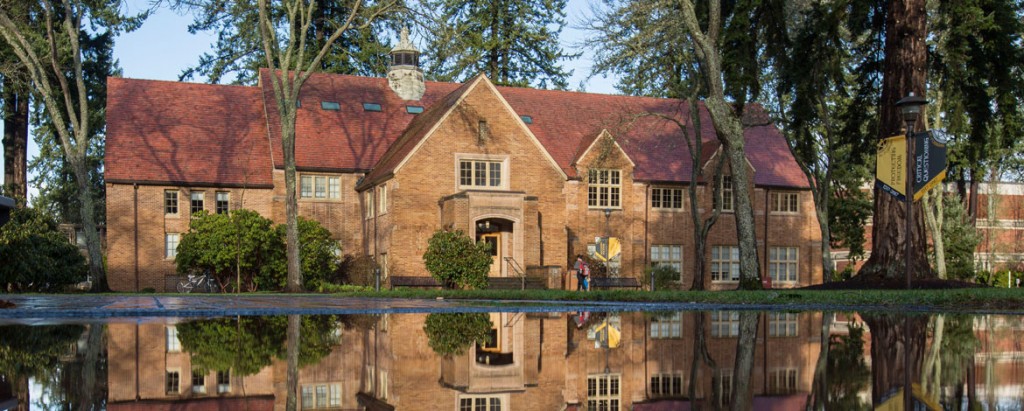Page 60 • (962 results in 0.023 seconds)
-
an immersive environment for our students to develop their Spanish language skills and deepen their understanding of Mexican history and culture. Courses this fall begin with a three-week Spanish immersion term and continue during a second term when students take two of the following courses: Mexican Anthropology, Mexican History, Mexican Literature, and Biology. During the third and final term, students choose between a Mexican Art History course, an internship working with Oaxacan non-profit
-
, including chemistry, physiology, physics, and biology. Mathematics/Statistics Courses Many OT programs do not require math courses as part of their prerequisite courses, however, statistics courses are required for most programs. We recommend at least one math course be taken along with your statistics course. Math requirements vary by program, please refer to the specific program you have chosen to be sure your Math requirements are fulfilled.Social and Behavioral Science Courses Most schools require
-
, including chemistry, physiology, physics, and biology. Mathematics/Statistics Courses Many OT programs do not require math courses as part of their prerequisite courses, however, statistics courses are required for most programs. We recommend at least one math course be taken along with your statistics course. Math requirements vary by program, please refer to the specific program you have chosen to be sure your Math requirements are fulfilled.Social and Behavioral Science Courses Most schools require
-
2022-2023 Entering junior or senior year Fall 2022 Pursuing a degree in biology, chemistry, or a related field A minimum of two wet lab courses with emphasis in pipetting, sterile technique, data interpretation, and good lab notebook practices This internship program seeks to engage scientific curiosity and promote biomedical research careers among PLU undergraduates and is committed to expanding diversity among students who enter STEM fields. Compensation: The intern will receive a total of $6,000
-
Despite pandemic challenges, transfer student finds community at PLU Monya-Dawn Wilson ’22 is a DJS Fellow and Rieke Scholar who came to PLU as a transfer student. Wilson is a Biology major, and dreams of becoming a pediatrician. “I’ve always liked science and learning,” said Wilson. “I like learning about the body, learning about… June 10, 2022 AcademicsBiologyClubs & OrganizationsDiversityDiversity Justice SustainabilityInvolvementJusticeLife on CampusLutheran Higher EducationNursingPLU
-
Despite pandemic challenges, transfer student finds community at PLU Monya-Dawn Wilson ’22 is a DJS Fellow and Rieke Scholar who came to PLU as a transfer student. Wilson is a Biology major, and dreams of becoming a pediatrician. “I’ve always liked science and learning,” said Wilson. “I like learning about the body, learning about… June 10, 2022 AcademicsBiologyClubs & OrganizationsDiversityDiversity Justice SustainabilityInvolvementJusticeLife on CampusLutheran Higher EducationNursingPLU
-

see some of the harm that our society is doing so that they can’t really ignore it and live the same way they have been.” And it’s not only the students who are having revelations. Heath has discovered that this fictional world created by imagining a starship allows for conversations, and disagreements, that are otherwise impossible. For example, when he asked two different biology professors about creating a biosphere, one was adamant that it had to be based on a tropical climate in order to
-

they are at right now,” Gardner said. “And then we put all those pieces together for them.” In many cases, care managers coach students through the higher education process, including picking the right classes, working through challenging courses or helping them reimagine their major or career. “What do you do when your dream job is nursing, you can’t pass biology 205 or you don’t want to pass biology 205?” said Kris Plaehn, senior advisor and director for retention. “There are all sorts of other
-

distribute the kits, Røskeland said. Since the organization’s beginnings, the all-volunteer group has produced and delivered approximately 18,000 birth kits, she said. Kits have been distributed in the countries named above and Congo, Guinea and Sierra Leone. In addition Røskeland has given trainings in emergency obstetric methods and her organization has distributed medication in Liberia and Sierra Leone to assist women with postpartum bleeding. Røskeland credited her “rigorous education” in Biology at
-
. Their behaviors are explained by instincts, stimulus-response mechanisms or genetic programming.For humanists, the tendency is to treat animals as little more than allegories of human fear and desire. Or the animal is given up as radically unknowable beneath human representation. Animals in the humanities? It seems almost an oxymoron.Alienating animals from their own lives is a danger in wildlife biology, as well, where researchers often must separate their personal from their professional responses
Do you have any feedback for us? If so, feel free to use our Feedback Form.


